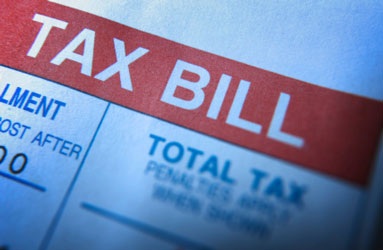The final date for UK tax declaration has now passed and individuals who are believed to have not paid will face a formal investigation by HMRC.

According to HMRC about 10,000 people came forward during the time period, with an estimated 1,000 people waiting until the very last day to come clean. The reduced 10 percent penalty perhaps proved incentive for those that notified HMRC as those that didn’t have missed their final chance and will now face 100 percent penalties.
An HMRC spokesman said of the window: “There will be no other disclosure opportunities for people with undeclared offshore income and gains. We won a legal case last year, which means all offshore banks with a UK operation have to hand over details of all their account holders to us. We are now starting inquiries on those who did not come forward.”
The increased penalty was brought into place in a bid to flush out any potential tax evaders, especially those who have funds lodged away in offshore accounts, a practice described by the Treasury minister, Stephen Timms, as “morally unacceptable”. The spokesman added: “It is always better to make a voluntary disclosure of any undeclared income and gains to HMRC as soon as possible in order to help avoid higher penalties when we start a formal inquiry.”
HMRC will now pour over data disclosed from banks to ascertain if suspected individuals have hidden sums of money with the intention of evading tax. Those under investigation will be notified via a letter stating that an investigation is under way. They will be given instructions as to what information is required from them, when they must provide it and what it is exactly that is being investigated i.e. their tax return.
Despite the high number of people coming forward financial experts claim that the figure was still below that expected by HMRC, and that the investigations will prove to be a drain on resources. Chris Oates, a partner at Ernst & Young's Tax Controversy & Risk Management, told The Telegraph: “Many individuals will have felt compelled to take up the initiative. This is because of the harsher treatment they would otherwise have faced. However, this is a significantly lower figure than the Revenue had expected. It does mean that HMRC may have to commit a lot more resources to investigating people than they would have hoped. This could have significant resource implications when they are looking to substantially reduce staffing”.
This declaration is only applicable to UK residents. Expats are not liable to income or capital gains tax in the UK. Workers who are temporarily non-resident may also not be liable for income tax but they should check with a suitable adviser. Expat & Offshore has an extensive section on Tax Solutions for Expats.

